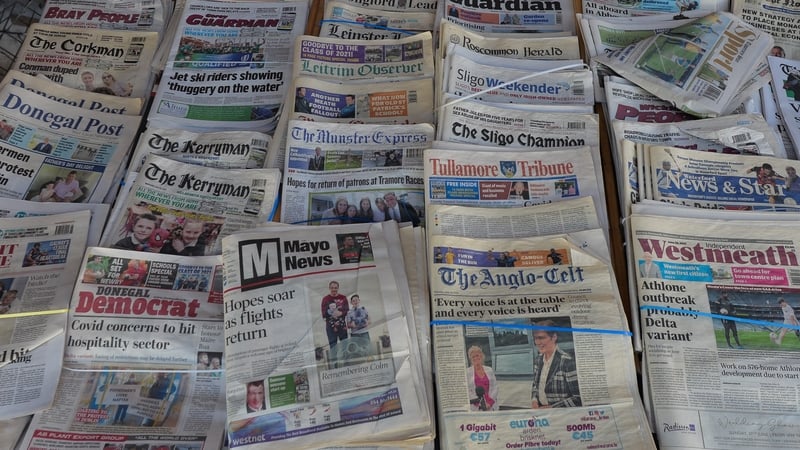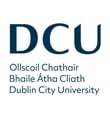Analysis: Irish local newspapers and radio stations perform many vital roles, including asking critical questions of all candidates in local elections
The decline of local journalism is a quiet threat to democracy and community life. Across the country, newspapers have closed down and there are fewer journalists at work across the sector. Such slow declines can go unnoticed, especially when there is no shortage of (often dubious) online information and commentary.
The expectation that trained journalists will be present to report on court cases, council meetings and other developments is an essential part of democratic accountability. If that reporting stops, then the door to widespread corruption creaks open.
We need your consent to load this rte-player contentWe use rte-player to manage extra content that can set cookies on your device and collect data about your activity. Please review their details and accept them to load the content.Manage Preferences
From RTÉ Radio 1's Morning Ireland in 2023, local newspapers 'still surviving' in face of digital transition
Meanwhile, the explosion of online disinformation calls for trusted journalists with the knowledge and skills to investigate claims on behalf of their communities. This issue is acute as Ireland heads into the local elections, which are taking place in a volatile atmosphere of anti-immigration protests and arson attacks.
At the last local elections in 2019, turnout was only 50%, the joint lowest in the history of the State, and Fianna Fáil and Fine Gael consolidated their positions as the two dominant parties in Irish local government. Much has changed since then and most notable is the rise of independent candidates and candidates linked to extremist parties.
Local journalists are ideally placed to ask critical questions of all candidates. Local radio, in particular, is a counterpoint to the unregulated chaos of online media. Radio broadcasters are bound to a code of fairness and impartiality and are prohibited from encouraging listeners "to vote in support of or against any particular" candidate. In these ways, local media play a vital role in democracy.
We need your consent to load this rte-player contentWe use rte-player to manage extra content that can set cookies on your device and collect data about your activity. Please review their details and accept them to load the content.Manage Preferences
From RTÉ Radio 1's Morning Ireland, Dr Eileen Culloty from DCU on 'news deserts" and the dangers they present
Researchers in the US coined the term 'news desert' to describe areas with no reporters or professional news services. Researchers at DCU recently contributed to a study investigating the issue in Europe which took a broad view to identify areas of risk. In addition to the closure of outlets, it examined factors including the viability of journalism as a career; the transfer of ownership from local to international businesses; and whether media coverage has kept pace with changing demographics.
In Ireland, we are heavily wedded to our county-based identities and the structure of local media reflects that. Almost all counties are served by a local newspaper and/or radio station. Outside Dublin, local radio often accounts for the majority-share of radio listenership. Moreover, levels of trust in local media are high: 70% of respondants in a representative national survey said they trust local radio, while 68% trust local newspapers.
On paper, this sounds incredibly positive. Unfortunately, it does not guarantee that quality local reporting will continue. The decline in local journalism jobs means there are less trusted reporters on the ground. The jobs issue is compounded by the unaffordability of housing and accommodation. A 2022 survey found that 60% of under 35s cannot afford to live in the community they would like to live in.
We need your consent to load this rte-player contentWe use rte-player to manage extra content that can set cookies on your device and collect data about your activity. Please review their details and accept them to load the content.Manage Preferences
From RTÉ Radio 1's Countrywide, Brenda Donohue heads to Waterford to see how important local media is, while Johnny O'Hanlon from the Regional Newspapers and Printers Association of Ireland on what is needed to support the industry
Changing patterns of media ownership can also undermine local journalism jobs. Irish media outlets now "predominantly lie in foreign hands". When local outlets are bought by international publishers, the connection to communities is greatly diminished. The trend is evident across the EU: newsrooms become centralised in the main cities with reporters occupying desk-based jobs far away from the communities they supposedly represent.
Long before the internet, there were significant criticisms of the close relationship between media and the businesses that advertise in (and therefore fund) them. Moreover, national and local level in most countries are guilty, to varying degrees, of "churnalism" – publishing press releases or content found online as news stories.
It is easy to see how AI could be used to generate the same content at scale and global media publishers have unsurprisingly expressed great interest in AI as a "solution" for under-resourced local journalism. AI-generated content is not the solution when the problem is a lack of good jobs and resources to conduct quality journalism. The problem for which we need a solution is how to fund journalists working on the ground to hold power to account.
We need your consent to load this rte-player contentWe use rte-player to manage extra content that can set cookies on your device and collect data about your activity. Please review their details and accept them to load the content.Manage Preferences
From RTÉ News in 2020, local newspaper industry in Dublin suffers blow following closure of two papers
This issue was recognised by the Future of Media Commission, which recommended the development of public funding schemes for court and local democracy reporting. The media regulator, Coimisiún na Meán is currently developing these schemes. While such schemes are welcome, it is not yet clear how they will work in practice or who will benefit from them.
Meanwhile, gaps have emerged as Ireland’s cities, towns, and suburbs have grown considerably. Dublin city and its expanding suburbs are at most immediate risk of being news deserts. Although most national media are based in Dublin and are frequently accused of having a Dublin bias, in-depth local reporting is often lacking.
Launched in 2015, Dublin Inquirer has done much to address this gap by prioritising accountability journalism and investigating issues for communities. The big question then is how or whether a Dublin Inquirer model could be replicated elsewhere or translated into local and community radio formats.
Dublin city and its expanding suburbs are at most immediate risk of being news deserts
As we head into the local elections, there has been a lot of noise around citizen journalism. The concept has been corrupted by those who have no regard for standards of journalism and are more interested in advocating their own agendas than conducting transparent, public-interest investigations.
The EU study has shown is that Ireland is at risk of developing news deserts, but the situation is not yet critical. If nothing is done, it seems likely that a replication of the study in just a few years will find an increasingly barren local media landscape with plenty of AI-generated content and agitators and conspiracy-theorists masquerading as online reporters.
Follow RTÉ Brainstorm on WhatsApp and Instagram for more stories and updates
The views expressed here are those of the author and do not represent or reflect the views of RTÉ






